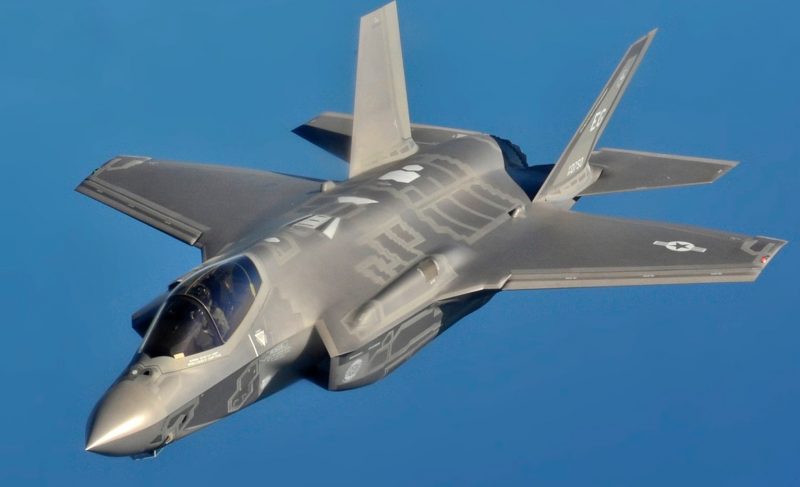US pressure on the United Arab Emirates to reject Chinese telecom technology has reportedly helped scupper a multi-billion-dollar F-35 fighter jets deal.
UAE officials say “onerous” demands by the US State Department on the country to reject Chinese tech and safeguard its weaponry from espionage have put the landmark $23 billion F-35 fighter jet and drone deal on ice.
“The UAE has informed the US that it will suspend discussions to acquire the F-35,” an Emirati official told CNN. “Technical requirements, sovereign operational restrictions, and cost/benefit analysis led to the re-assessment.”
The US government has repeatedly pushed the UAE to drop China’s Huawei Technologies Co from its telecom network – something it has done around the world, to even its most staunch allies – claiming the technology could pose a security risk for its weapons systems, CNN reported.
Also on AF: China Stocks Fall on US Plan to Blacklist Drone Firm, Others
But UAE officials were sceptical and expressed their concerns about getting caught up in a new “Sino-US Cold War.”
“What we are worried about is this fine line between acute competition [between China and the US] and a new Cold War,” Anwar Gargash, diplomatic adviser to the UAE leadership, said in remarks to the Arab Gulf States Institute in Washington last week.
Gargash also confirmed reports that the UAE had recently closed a Chinese port facility over US suspicions that it was being used for military purposes, despite the UAE’s assessment that the site had no such purpose, CNN reported.
Analysts say the breakdown of the deal between the two long-time partners is a sign of Abu Dhabi’s growing frustration with Washington’s attempts to limit Chinese technology sales to the oil-rich Gulf state.
According to a report in the Wall Street Journal, which broke the story, the Emirati government told US officials it intended to halt the deal – which includes 50 Lockheed Martin F-35 fighter jets, 18 MQ-9B Reaper drones and a package of air-to-air and air-to-ground munitions – because Abu Dhabi thought security requirements the US had demanded to safeguard the high-tech weaponry from Chinese espionage were too onerous, placing the country’s national sovereignty in jeopardy.
US Demands ‘Non-negotiable’
The US State Department said the White House remained “committed” to the deal, which was seen as a cornerstone of an August 2020 agreement to normalise diplomatic relations between the UAE and Israel – a move much heralded by then-President Donald Trump.
“The UAE and US were working toward an understanding that would address mutual defence security conditions for the acquisition,” the official added. “The US remains the UAE’s preferred provider for advanced defence requirements and discussions for the F-35 may be re-opened in the future.”
On Tuesday, Pentagon press secretary John Kirby also said that the US was willing to work with the UAE to address both countries’ concerns, but insisted it would not budge on so-called “end-user” requirements.
“The US partnership with the UAE is more strategic and more complex than any one weapons sale,” Kirby said at a press conference. “We will always insist, as a matter of statutory requirements and policy, on a variety of end-user requirements. That’s typical.
“And these end-user requirements and protection of US defence equipment are universal, non-negotiable and not specific to the UAE,” he added.
Door Opens To Russians
In Kuala Lumpur on Wednesday, US Secretary of State Antony Blinken said Washington had to conduct a review but was prepared to move forward with the sale, Reuters reported.
“We’ve wanted to make sure, for example, that our commitment to Israel’s qualitative military edge is assured, so we wanted to make sure that we could do a thorough review of any technologies that are sold or transferred to other partners in the region, including the UAE,” Blinken said.
The rupture could also open the door to competitors, such as Russia’s fifth-generation Su-75 Checkmate fighter developed by Sukhoi, The Defense Post reported.
- By Dave Makichuk
Read more:
From Tents to Burj Khalifa, UAE To Celebrate Its Rise
United Arab Emirates Aims to Bolster Role as Gateway to Asia, Africa and Europe
























